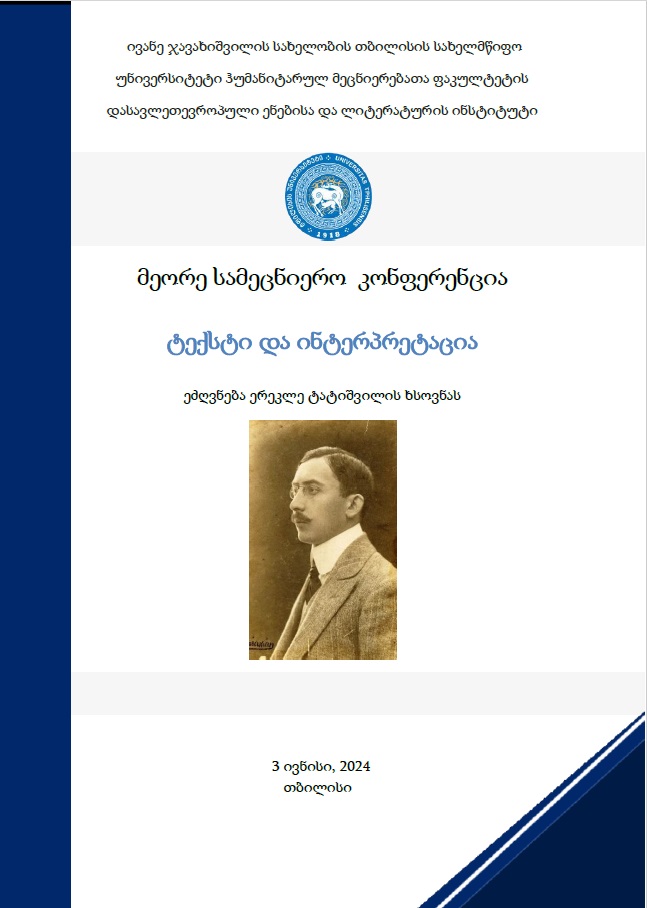Goethe's Mephistopheles: Essential Traits of Mephisto
Keywords:
Goethe, “Faust”, Faust, Mephistopheles, Onomastics.Abstract
- As a character, Mephistopheles encompasses numerous dimensions, a rare occurrence in the pantheon of world literary characters. Specifically, as a fictional figure, Mephistopheles evinces an explicit proclivity toward emphasizing distinct traits, including philosophical world-view, anthropological, ontological (related to existence), gnoseological (related to cognition), axiological, mental, ethical and sociocultural dimensions.
- The attributes that strike us as essential to Mephistopheles are as follows:
a)Antropological (related to human essence) trait- Mephistopeles personifies inconscient, irrational part of human makeup, instinct, libidinality, sexuality, vitality, corporality.
b)Ontological (related to existence) trait- Mephistopheles personifies the irrational part of the world’s makeup- vigor/will (“Kraft”/”Wille” in German) and also the world’s initial darkness/tenebrosity (“Finsternis” in German).
c)Gnoseological (related to cognition) trait- Mephistopheles personifies skeptical, nihilistic conscience and nonmetaphysical cognition.
d)Axiological (related to values) trait- Mephistopheles as an essence which is disposed to favor mercantile-consumeristic values.
e)Mental trait- Mephistopheles personifies materialistic conscience.
f)Existential trait- Mephistopheles personifies existential inanity, “eternal emptiness” (“das Ewig-Leere” in German) i.e nothingness.
g)Philosophical world-view- Mephistopheles personifies materialistic, radical enlightenment.
h)Ethical trait- Mephistopheles personifies immoralism. He is an essence which is beyond moral categories of “good” and “evil”.
i)Historical and sociocultural trait-Mephistopheles personifies utilitarian, colonizational, expansionistic and violating spirit of the modern.

